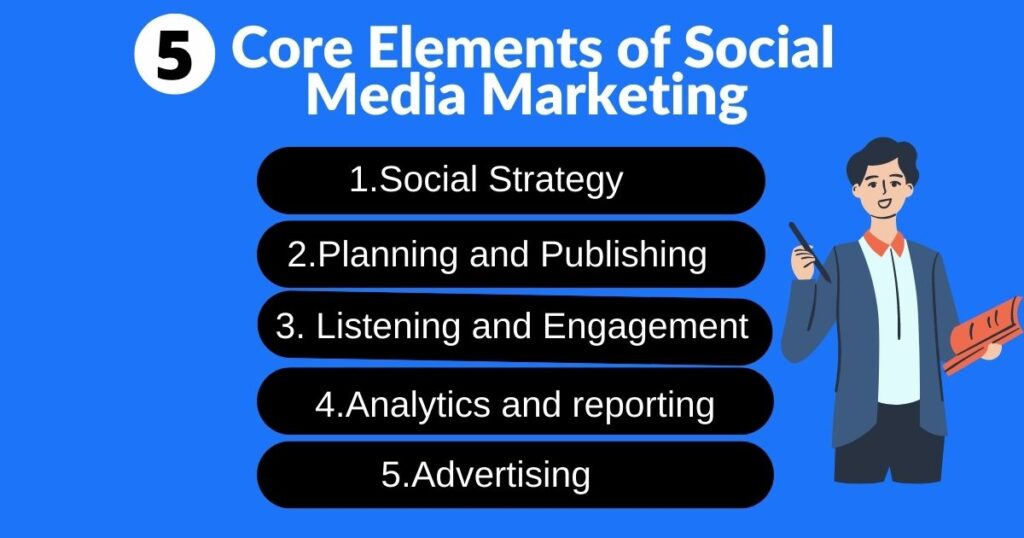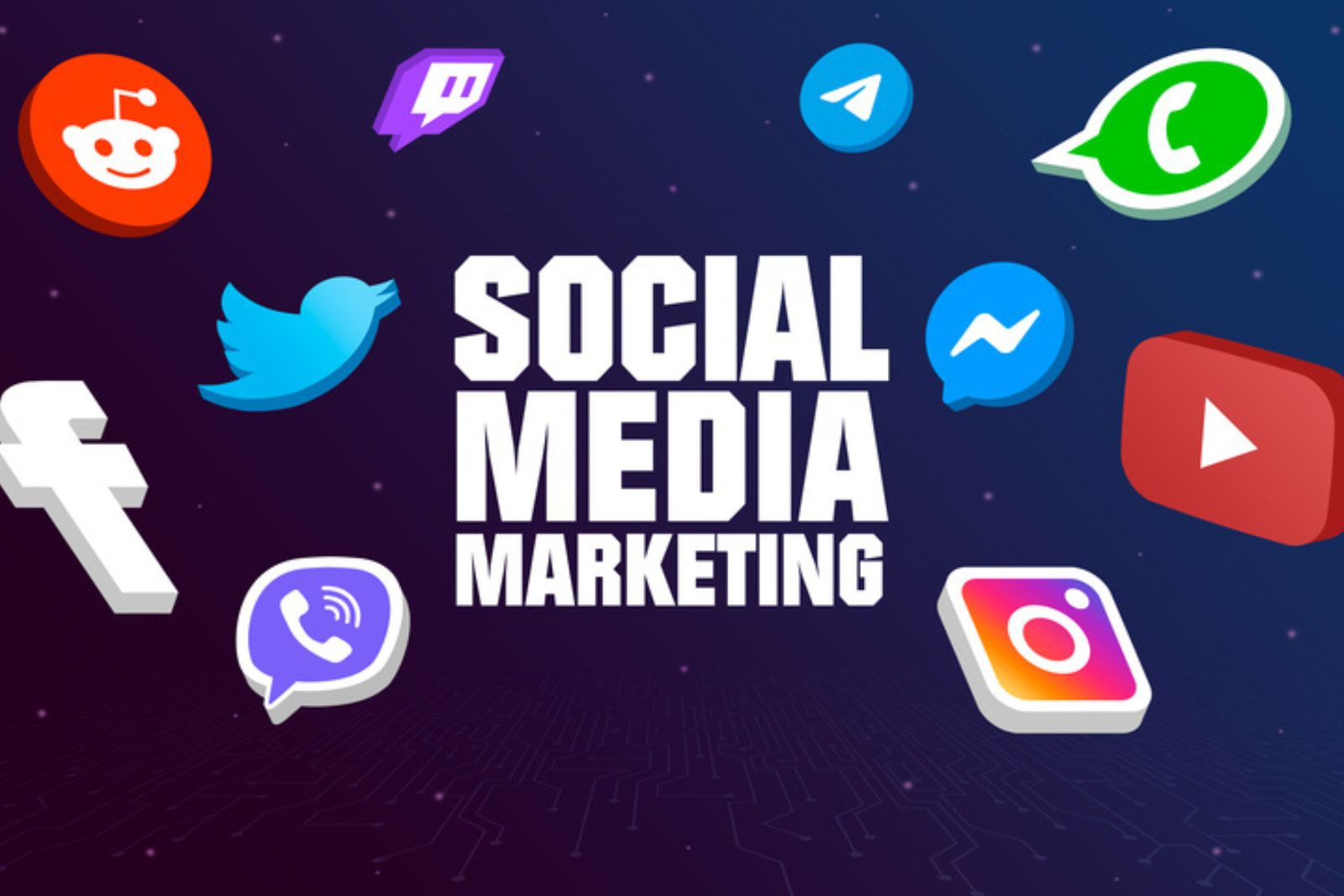Social media marketing (SMM) is a form of internet marketing in which companies use social networking sites in order to grow their business.
Social media has opened many possibilities for businesses including connecting with customers, building a brand and gaining awareness.
Every business has a voice which can be heard if you know how to create the perfect platform to share your content.
When building your audience on social media you not only increase brand awareness, but also reach a wider audience of customers and fans who are ready to follow your various business accounts.
By doing so, awareness of your products is spread virally giving new potential clients the opportunity to be exposed to unique business offers available directly from brand representatives that they might otherwise have never had access to.
Producing relevant content that users will share with their own networks helps brand exposure.
It extends their reach towards fans, potential customers and even potential employees as a recruitment tool.
Social media marketing can help business owners significantly improve the way they engage with their audience.
It gives them a chance to quickly and directly reach out to customers and answer questions they may be unsure of the answers to, or even just thank them for sharing the opinions that are based on facts rather than assumptions.
In addition, it also enables business owners- such as yourself – to learn through others in the industry who you previously lacked the opportunity to communicate with.
Popular Snapchat apps include Facebook, Twitter, LinkedIn, YouTube, Pinterest, Instagram and others.
Each platform has its own unique features and when a company uses several in combination for one message across various platforms consumers can pick up on the intended message by using social media.
5 Core Elements of Social Media Marketing
To start marketing programs off strong and to maintain interest in the product or service being offered, we carefully choose our words very meticulously. A key area that some marketers care about is sharing their messages with the target audience.

Social media helped spread those messages to the right people at the right time, both for free and for payment. Social media also enabled companies to get better knowledge about their potential customers by collecting personal and geographic information. This enables organizations to customize their messaging and content in order to deliver it most effectively.
1. Social Strategy
With any marketing campaign, an appropriate strategy should be laid out in advance. If a company wants to optimize its performance, it is important to consider the goals of the program or campaign as well as how they wish their message to be distributed. In addition, the right kinds of content should be produced and promoted.
2. Planning and Publishing
Once you’ve decided upon your strategy, it’s time to get started. This may seem as easy as posting a new blog or product video, or sharing information pertaining to an event everyone is eager to attend.
But being consistent and building an audience at the same time can be challenging. You should post frequently (and relevant content) in order to keep the audience coming back for more! Brands should be consistent with their social media posts.
Using scheduling tools from Hootsuite, Sprout Social or HubSpot allows brands to keep favorable customer relationships when sharing information on important days or for special events.
3. Listening and Engagement
Asking questions and spreading positivity is the key to success in social media. Activity drives social strategies because content shared gets re-shared, keeping conversations going instead of being abandoned. Successful online campaigns foster conversations that fuel word of mouth marketing and lead to positive brand recognition.
Social media is a great place to talk about your favorite brands, cool products, or amazing services. People can speak so freely on this platform because it is so anonymous.
Many brands use social media listening tools to make sure they hear every conversation taking place with their company and the services they offer whether people are posting good news or bad news.
There are several social media listening tools available to stay plugged into the conversation, such as Brandwatch, NetBase and Quid. Free tools such as Google Alerts can also notify marketers when their company is being mentioned.
4. Analytics and Reporting
As more content has been published and the audience expands, it’s wise to continuously measure performance in order to use it for future campaigns. Remind your team asking questions like: 1) Which posts are getting the most engagement?; 2) Where are your followers from?; 3) What is the success of any marketing program dependent on its data and analytics outputs so far? Each social channel has their own analytics, but there are other tools that can collect multiple pieces of marketing data together to keep track of the overall success and failures of marketing campaigns.
5. Advertising
Much of social media marketing is free — but you should be aware that it will cost you in the long-run. The investment up front for a strong social media presence is worth it in the long run because of how great it can bolster your brand and attract potential customers, but in some cases, hiring a professional to manage or expand a social marketing campaign can help keep costs down and make sure you’re getting everything from your investment that you could want out of it.
Using native advertising on social media to grow your business is an effective way of helping to market goods and services to a wide but targeted audience. Goals for native advertising include capturing leads, escalating conversations into more sales on every level, as well as increasing brand awareness.

